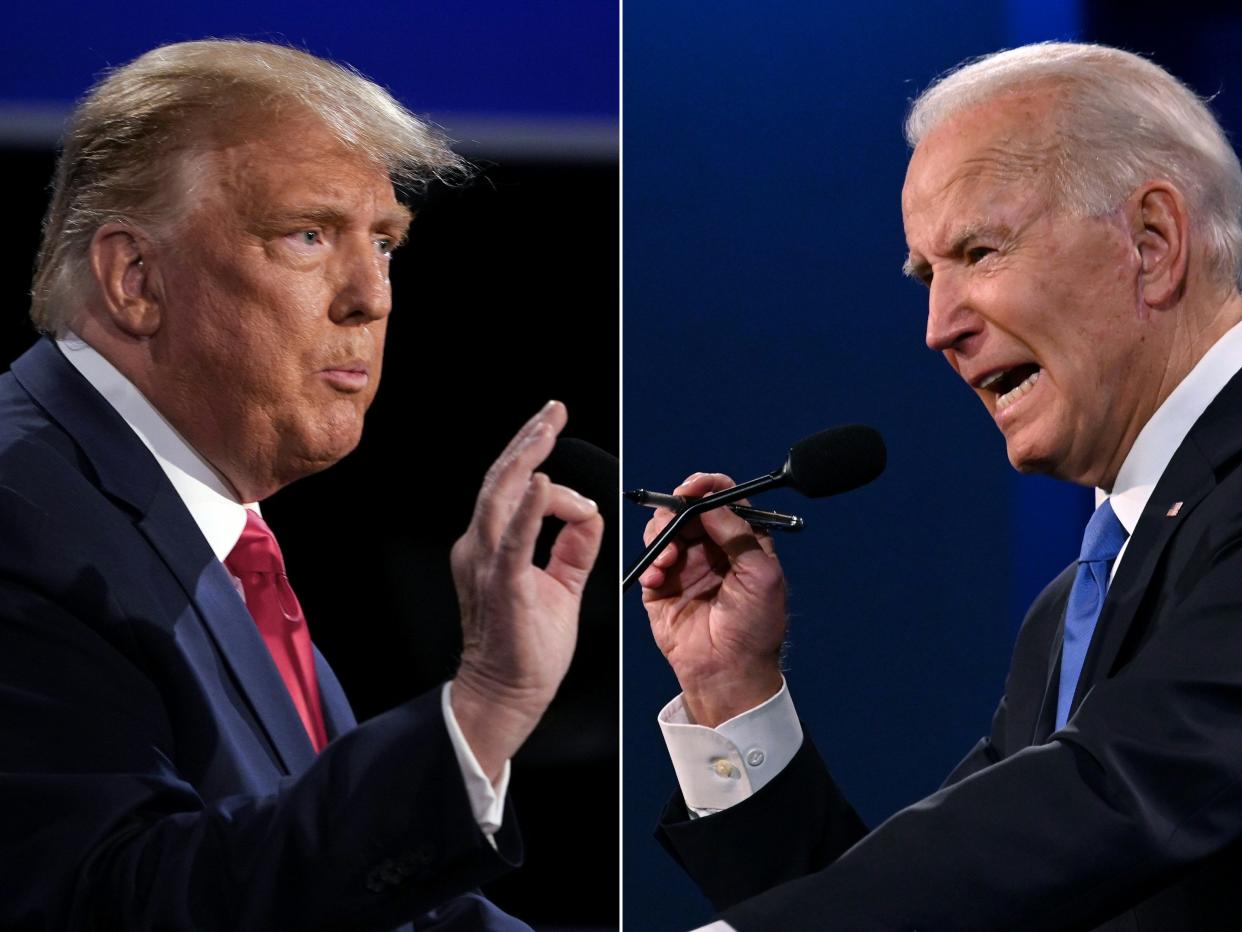Why a No Labels candidate could lose Arizona's presidential election — and still win

The major parties finally have a point of agreement: a common enemy.
The No Labels organization in Washington, D.C., has committed to securing a 2024 ballot line in all 50 states for an independent presidential candidate to challenge Joe Biden and Donald Trump, assuming they will be the parties’ candidates.
The parties and their supporters have quickly rallied to quash this threat to their duopoly.
Arizona Democrats sued to boot No Labels
The Arizona Democratic Party recently sued Secretary of State Adrian Fontes to stop the inclusion of a No Labels candidate line on the 2024 ballot.
Its justification included the assertion that such a nonparty candidate would make it harder for the Democrats’ candidate to win.
Lawsuit alleges: No Labels Party broke the law to get on the ballot
A loss can happen when voters are offered a stronger candidate, but exclusion seems a uniquely undemocratic remedy.
Both Secretary Fontes and No Labels promptly moved to dismiss. The Democratic Party has opposed those motions.
Prominent national journalists share Arizona Democrats’ fear and loathing of No Labels.
Why is 'hold your nose and vote' OK?
Columnist Gail Collins took aim in The New York Times earlier this month. Acknowledging the profound weaknesses of Trump and Biden, she admonishes voters to hold their noses:
“Even if you aren’t thrilled by the Republican and Democratic options come election day, don’t vote for anyone else. We’re talking here about the temptation of third parties. So tempting. So disaster-inducing.”
Her exemplary disasters uniformly involve the Green and Libertarian parties, marginal splinters of left and right that occasionally threaten to affect a close election.
Collins somehow ignores the only example pertinent to No Labels — Ross Perot’s 1992 run from the center, which:
drew lots of votes, rather than a handful,
did not affect the outcome of the election, and
led to much improved bipartisan governance.
No serious observer still questions those assessments.
A third candidate doesn't have to be a spoiler
Collins’s parting advice for voting on Election Day:
“(T)he smartest thing you can do is accept the depressing compromises that can come with a two-party democracy (then) ... go home after and have three or four drinks.”
Uplifting words; words to live by. Inebriation as anodyne for malfunctioning democracy.
Meanwhile, on the opposite coast, Doyle McManus played the same song with the same false notes, in a Los Angeles Times piece:
“(A) third-party ticket would almost surely be a spoiler, taking just enough votes from one of the two major-party candidates to tip the outcome.”
This bald assertion floats untethered in a speculative vacuum, with no knowledge or even assumption regarding the actual candidates.
The only historical support offered involves the Green Party, a left-wing splinter that could only siphon off Democratic votes. Again, no mention of Perot, the one obvious and relevant example.
Don't buy the false dichotomy they're selling
More broadly, these criticisms set up a false dichotomy: that a third candidate is either a winner or a spoiler.
No Labels responds to such criticisms by asserting that its ticket could win. Maybe so, depending on many circumstances yet to be determined, but that retort seems to accept the faulty premise.
Perot didn’t win, but, far from spoiling anything, his candidacy ushered in years of constructive, bipartisan governance, with a growing economy, prosperity, a budget surplus, welfare reform, more job opportunities for women and minorities, and rising international stature.
Voters who are profoundly upset and dissatisfied with the last two administrations yearn for a return to that kind of spoilage.
It's easy to be a cynic in this environment, but cynicism never accomplished anything. Believers accomplish something, or they fail, but they at least offer the possibility of progress.
Such is the No Labels quest.
C. Owen Paepke is the author of "The Purple Presidency 2024: How Voters Can Reclaim the White House for Bipartisan Governance" and worked for more than 35 years as an attorney. He is a longtime resident of Phoenix and Scottsdale. Reach him at owenpaepke@gmail.com.
This article originally appeared on Arizona Republic: No Labels can help our politics, even if Trump or Biden wins in 2024

